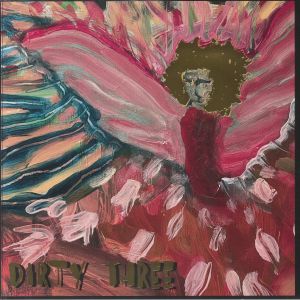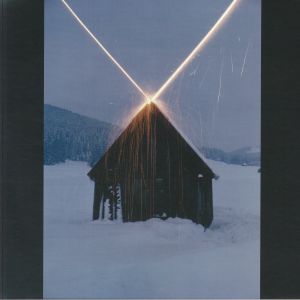Receive new release alerts for Drag City US
Drag City US Vinyl & CDs
Browse the latest Vinyl & CD releases on Drag City USSimilar labels:
in stock ₺1.246,65
Cat: 959733 Rel: 07 Sep 23
After Math is part 2 of Mayo Thompson's first published work of fiction since the nineteen-sixties, of which Art, Mystery is part 1. He is best known for his work with the psychedelic band, The Red Krayola.
Notes: If we are somewhat over-inundated with rock biographies right now, then you can trust The Red Krayola's Mayo Thompson to come up with something different. The second part of his 'After Math' series sees us catch up with a plot to smuggle a small erotic bronze out of Tirana and the subsequent plot twists and red herrings are as unexpected and bewildering as any The Red Krayloa recording.
… Read more 1 in stock ₺1.157,41
Click for better price!
or call +44 20 7424 1960
quote 959733
quote 959733
in stock ₺1.057,49
in stock ₺1.068,18
in stock ₺1.068,18
Review: Zone Black almost never was. The KPM music library originally commissioned Emil Amos to make a collection of new material which could be used in television and film. A little way into this process, the executive who did that hiring departed, and the artist opted to take what was there to the Drag City label in a bid to turn it into a proper album. The end result is something between the two. For all intents and purposes, plenty here fits into the library definition, but this is a far more personal, deeper and coherent take on the format. The foundations of library music - commercial use - soon thrown out with the dishwater, and instead the focus was on creating movements and arrangements that would hold up on their own, and create entire narratives independently, for themselves. Removed from what's happening on screen, you can live in these tracks and nowhere else.
… Read more in stock ₺812,75
in stock ₺710,69
in stock ₺1.413,90
in stock ₺1.413,90
Played by: Juno Recommends Rock/Indie
in stock ₺1.068,18
in stock ₺533,82
Cat: DC 907. Rel: 21 Nov 24
Folk/Americana
Review: In December 2001, at Maida Vale Studios, Bill Callahan's Smog delivered a raw, haunting session for the BBC. Alongside bandmates Jessica Billey, Mike Saenz and Jim White, Callahan's performance embodied a Lynchian mood of U.S. darkness in the wake of 9/11, covering Stevie Nicks, Lou Reed, and Smog tracks with a sombre, tour-worn edge. Callahan reflects, "It's all live, no overdubs. The session felt encapsulatedisomething foreign, yet intimate." The band's reimagining of 'Beautiful Child' in a minor key, the fiery rendition of 'Cold Discovery', and the moving take on 'Jesus' highlight the raw, unfiltered essence of this live recording.
… Read more in stock ₺1.046,27
Review: Bitchin Bajas are back two years after they last went out on a live run. This new album finds the group taking a deep dive into the songbook of one of the world's most unique and idiosyncratic jazz artists, namely Sun Ra. The cult synth drone band adds their own interpretation to his music with a stylish sense of rhythm from front to back. There is plenty of joy in these cosmic transmissions as they layer up their Yamahas, Rolands, Korgs, Casios, a MicroMoog and Ace Tone organ into music from another universe.
… Read more in stock ₺1.380,24
in stock ₺556,80
Review: Sunn O)))'s drone overlord Stephen O'Malley first teamed up with Francois J. Bonnet in 2019 for the first volume of Cylene - a formidable exploration of sustained frequencies from a multitude of sources released on Editions Mego. Since then the pair have embarked on numerous concerts, installations and recordings, finally resulting in this sublime sequel. This is music to zoom in on, where the slow shifts in tone are sometimes imperceptible, but profound to those that hear them. Shot through with a certain longing, it's charged ambience for those who don't need the emotional content to be presented in obvious terms.
… Read more in stock ₺1.257,87
Cat: DC 890. Rel: 07 Aug 23
Folk/Americana
Review: Bonnie "Prince" Billy (Will Oldham) is a folk artist of towering stature, so the news of a new album in 2023 was nothing if not a "stop what you're doing" moment. Now coming to full-length LP format for the first time, after an initial CD and digital release, Keeping Secrets Will Destroy You hears Billy revive the spirit of folk music's roots in community and place, conjuring the wise memories of his past and fusing them with the anxieties of his present day. An all-acoustic, all-emotive album, Oldham makes constant reference to his family and people, getting at the real impossibility of divorcing oneself from community, despite the myths to the contrary peddled by merchants of the American dream.
… Read more in stock ₺1.213,52
Cat: 781484 089025. Rel: 29 Sep 23
Folk/Americana
in stock ₺690,39
Played by: Juno Recommends Dub, Thread London
in stock ₺533,82
Played by: Juno Recommends Rock/Indie
in stock ₺968,79
in stock ₺968,79
in stock ₺946,34
Review: Drag City has reissued Dorothy Carter's 1976 debut album, Troubadour, a significant work in her folk music career. Known for her expertise on hammered dulcimer and psaltery, Carter's musiciinterweaving Appalachian, Celtic, Jewish, and her own compositionsiexudes a timeless, magical quality. This reissue not only revives her debut but also includes an insert with additional photos and notes by producer Eric Demby, recalling his childhood encounters with Carter's music. Troubadour captures Carter's eclecticism and her dedication to melding global musical traditions. The album opens with the medieval French instrumental 'Troubadour Song' and ventures through a variety of folk traditions, including an enigmatic rendition of the Scottish ballad 'The Twa Sisters' and a vibrant Psalm 100 in 'Make a Joyful Sound.' Carter's approach blends Eastern and Western influences most strikingly on 'Tree of Life,' hinting at the spiritual fusion she would explore further in her later work. With tracks like the Israeli folk song 'The King of Glory,' Michael Praetorius' 'The Morning Star,' and Appalachian standards 'The Cuckoo' and 'Shirt of Lace,' the album is a profound exploration of folk traditions. This reissue, presented in its original format with enriched visuals and historical context, offers a deep dive into Carter's visionary artistry, capturing the essence of her early, transformative work. Essential listening for fans of Michael O'Shea, Laraaji, and Jerusalem in My Heart.
… Read more in stock ₺1.257,87
Cat: DC 902. Rel: 27 Jun 24
Post Rock/Experimental
Review: On The Key, New York drummer and all-round prolific sound generator Chris Corsano offers an acute glimpse into his live performance style. Aside from this evidently idiosyncratic solo approach - on full display here - Corsano also sought another level on The Key, plucking away at the many possibilities of a self-made string drum. The result is a free-improvised extravaganza, elseways one that hardly *sounds* improvised (yet we know it is), perhaps by sheer virtue of its progressive grandeur and singular sense. The mood is whimsical verging on capricious, with confounding titles like 'Unlike An Empty Box' and 'I Don't Have Missions' hinting at a postmodern jest baked into both the artist's personality and musical style, but the music is otherwise towering, cohesive, Babylonian; pree, for example, the flow-static climax that gives rise to suspended guitar solo on 'The Full-Measure Wash Down'.
… Read more in stock ₺1.179,86
Review: Five years after the second life of Death was started with the release of their revelatory 1976 album, "For The Whole World To See", "III" slams the door on the vault with a powerful set of songs that bring equal amounts of rock and ethereal soul-searching, in high-fidelity, rich bottomed, studio-grade sound. Alongside songs from 1975, 1976 and 1980, "III" contains two songs from 1992, as the Hackney brothers reconvened nearly a decade after they'd stopped playing together. The album serves as a companion piece of sorts to the "A Band Called Death" documentary, tracking the band's movement from spiritual young rockers to older and wiser, bruised-but-undefeated brothers, in pure musical terms. David Hackney's visual representation of Death was a triangle, where "spiritual", "mental" and "physical" formed the three angles. With this in mind, "For The Whole World To See" is clearly the physical corner, with its undeniable proto-punk power; "Spiritual-Mental-Physical" explores the mental axis, with Death working through some of their influences including The Beatles, Jimi Hendrix, The Who and even ELO in their practice space. "III" is the spiritual end of the portrait, bookended by the dreamlike rock visions of David Hackney that created and propelled the band called Death.
… Read more in stock ₺946,34
in stock ₺946,34
Love Changes Everything (LP in spot-varnished sleeve)
Cat: DC 918. Rel: 06 Aug 24
Post Rock/Experimental
Review: The Dirty Three's long-awaited return with Love Changes Everything sees the Melbourne instrumental band resurfacing with their trademark blend of mercurial energy and contemplative mood. Warren Ellis, Mick Turner, and Jim White effortlessly traverse from fury to ambient, displaying their strong abilities on guitar, drums, and violin/viola. The lead single, 'Love Changes Everything I,' storms in with razor-edged viola and raucous instrumentation, reminiscent of the band's indie roots. Yet, the album also explores moments of wariness and patience, weaving through loops and transcendental passages. While each member has pursued individual projects, their reunion heralds an exhilarating convergence of their distinct musical paths. With a career spanning over three decades, the Dirty Three continue to wow with their raw, emotive soundscapes cementing their status as one of the most innovative and enduring acts in the indie scene.
… Read more in stock ₺1.157,41
in stock ₺634,81
in stock ₺1.201,76
in stock ₺656,72
Improvisations I
Improvisations IV
Improvisations V
Improvisations II
Improvisations VII
in stock ₺1.257,87
in stock ₺934,59
Review: Out of stoner rock miasma traipse David Eugene Edwards (Wovenhand, 16 Horsepower) and Al Cisneros (OM, Sleep) with two new sludge-offs, 'Pillar Of Fire' and 'Capernaum'. With leeward, mountainous horror vacui depicted on the front cover - and a 10" press signifying that the musicians intend for this to be a maestro's statement, not too invested in the magnanimity of a full LP and yet still knowing full well that you'll lap up the sense of terse completion such a record promises - these tracks are estivate delights, both their meditative experimental-bass workings evoking barren, anxious wanderlust.
… Read more in stock ₺1.146,73
in stock ₺1.001,92
in stock ₺1.458,25
in stock ₺1.335,35
in stock ₺1.031,31
Review: It's one of those elephant in the room questions many artists likely grapple with, without really discussing it openly. How will a musician's work be remembered after they have left this world? In many artistic cases, we only come to appreciate an individual's output for what it is after they've gone, and this in itself is likely a phenomenon that creatives dwell on whenever considering the wonder of life. Here, veteran electronic music composer Jill Fraser has used this idea as a central theme, using a vintage 1978 Serge Modular, a Prism Modular, and Ableton Push 3 to reinvent and reconfigure a number of American revival hymns. These archival tunes are made new, and now built for the future, raising questions about their own mortality, or lack thereof.
… Read more in stock ₺1.198,02
Review: The long-awaited new album of psychedelia-tinged country from US singer-songwriter Edith Frost. It's her first album from the Texas native since 2005 and continues her long-standing partnership with the esteemed Drag City label, who she started her solo career with in 1996, after brief stints in bands The Holler Sisters and The Marfa Lights. Despite her lengthy absence, sonically she sounds on the form of her life: 'Nothing Comes Around' is as cool as anything Cate Le Bon or Aldous Harding have released recently. And 'Hold On' reflects Frost's taste for atypical vocal arrangements, which adds a striking touch to the otherwise more orthodox Americana feel.
… Read more in stock ₺973,06
Review: We Have Dozens of Titles by Gastr Del Sol is a treasure trove for fans, offering a glimpse into the experimental post-rock pioneers' journey from their Bastro roots to their groundbreaking work as Gastr Del Sol. This collection, curated from their 1993-1998 recordings, shows their evolution into sonic explorers, pushing the boundaries of post-rock with influences from musique concrete and free improv. The unearthed CBC recording from Festival International de Musique Actuelle de Victoriaville in 1997 is a highlight, featuring ethereal versions of familiar tracks like 'The Seasons Reverse' and 'Blues Subtitled No Sense of Wonder.''The live rendition of "Onion Orange' is a revelation, with Jim O'Rourke's kosmische synth waves intertwining seamlessly with David Grubbs' intricate guitar work. Additionally, the inclusion of rarities like 'The Harp Factory On Lake Street' and tracks from various compilations adds depth to the collection. Each track, whether a live performance or a studio recording, has been meticulously mastered or remastered by O'Rourke, enhancing the listening experience. We Have Dozens of Titles not only fills in gaps in Gastr Del Sol's discography but also exemplifies their innovative approach to music-making.
… Read more in stock ₺1.235,96
Review: Gastr del Sol might have gone their separate ways some 25 years ago, but they have recently taken the time to dig back into their fine archives. As a result they now serve up an alternate view of their superb, boundary breaking and genre busting run between 1993 and 1998 with a title box set, We Have Dozens Of Titles, on Drag City. Returning like a reverberating bolt from the blue, this album reignites the essence of the group and immerses listeners back into the whirlwind of their transformative era. It comprises previously uncaptured studio recordings and meticulously preserved unreleased live performances that all offer a captivating glimpse into the band's journey.
… Read more in stock ₺3.027,66
! low stock ₺1.001,92
in stock ₺1.246,65
Second Time Around (reissue) (heavyweight blue vinyl LP + insert)
Cat: DC 128. Rel: 22 Feb 24
Psych/Garage Rock
in stock ₺1.135,50
Review: You might remember David Grubbs from Squirrel Bait, Bistro, or Gastr de Sol. Codeine, The Red Krayola, Bitch Magnet or The Wingdale Community Singers. New wave or punk. His own output or that of the label he runs, Blue Chopsticks. Whatever reference rings truest, the American composer, guitarist, pianist and vocalist is an enigma responsible for a broad back catalogue of credits, projects, experiments and other. Whistle From Above lands in February 2025 and immediately proves Grubbs' continued genius and refusal to sit still. According to the limited information we have, he began developing these new guitar pieces - best described as somewhere between Fender drone, ambient noise, and musique concrete - following "months of shutdown woodshedding" in which he became "reinvigorated". What resulted was a deep dive into some personal solo arrangements and opportunities to engage with fellow sonic explorers - Rhodri Davies, Andrea Belfi, Nikos Veliotis, Nate Wooley and Cleek Schrey.
… Read more in stock ₺1.091,15
in stock ₺578,71
Review: Avant pop icons The High Llamas' founder Sean O'Hagan put his band on the back burner for a bit recently but by no means stood still. He's kept busy with his work as a film composer and arranger, even doing the score for Owen Kline's film, Funny Pages. But 2024 has seen a resurgence: the first High Llamas album since 2016 was released released and it was followed by a huge reissue announcement. Drag City is reissuing their five out of print 90s album on vinyl and Snowbug is the underdog within the collection but an underrated gem. It's O'Hagan's take on all manner of world-folk, 60s Ethiopian music and classic Brazilian pop. O'Hagan, who is a recording member of Stereolab, had an impressive cast of top players join in for the sessions. However, guest vocalists Laetitia Sadier and Mary Hansen from Stereolab are particularly noteworthy, bringing a bit of voodoo to the breezy morning-after vibe.
… Read more in stock ₺1.468,94
in stock ₺1.169,17
Review: Hawaii, released in 1996 by The High Llamas, is a celebrated album that showcases Sean O'Hagan's intricate arrangements and homage to the lush sounds of Brian Wilson and The Beach Boys. This deep dive reveals O'Hagan's journey from his early days in Microdisney to forming The High Llamas, highlighting albums like Santa Barbara and Gideon Gaye. Hawaii features 29 tracks blending Moog, banjo, strings, and brass, creating a musical paradise. It recapturing the charm of the 60s pop era, with The Irish Times describing it as a tribute to when popular music was genuinely popular. Despite being somewhat elusive on vinyl, the album still managed to breach the UK Albums Chart, landing at No. 62. O'Hagan's influences from various genres, including orchestral pop and exotic sounds, are apparent, as he sought to push musical boundaries and create something fresh, setting the stage for a rich legacy in modern pop music. This reissue makes this impressive release available again.
… Read more in stock ₺1.468,94
Review: It's been a massive 2024 for chamber pop heroes The High Llamas. There's been nothing but crickets since 2016's Here Come The Rattling Trees. Now all-of-a-sudden they're creating queues at the pressing plant with six newly-printed albums released via the Drag City label. In addition to releasing one of the best albums of their oeuvre with their new album, Hey Panada, they're releasing all five of their out of print 90s albums. Of which this album, originally released in 1998, is them experiment with beats and synth and splicing that into their harmonic Beach Boys-esque DNA. It's an album that radiates with blissed-out psychedelia and playful musical contrasts and lush harmony. You can't go wrong here.
… Read more in stock ₺1.468,94
Review: There's something uniquely Japanese and slightly off-kilter about the pop-making prowess of Eiko Ishibashi, a singer-songwriter, improvisational drummer, pianist and all-round experimentalist that counts Editions Mego and Oren Ambarchi's Black Truffle as labels she has released on. She returns to Drag City, an all time Chicago label famous for records by Pavement and Stereolab to more recently music from Ty Segall and the all-talented John Mulaney. Ishibashi's music here, however, sways from heavy industrial beats to future, funky and avant pop numbers like "Iron Veil". It's a record that will take some getting used to but there's no denying you will get used to it too; if you can keep up with its modernity that comes from way out leftfield.
… Read more in stock ₺1.001,92

 TRY
TRY





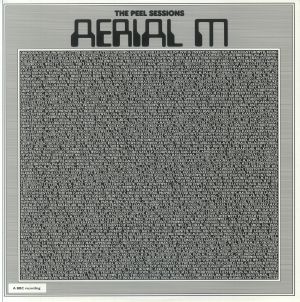
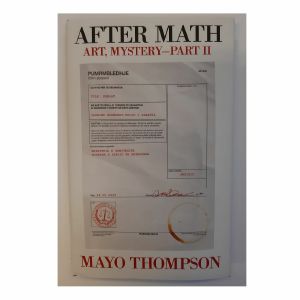








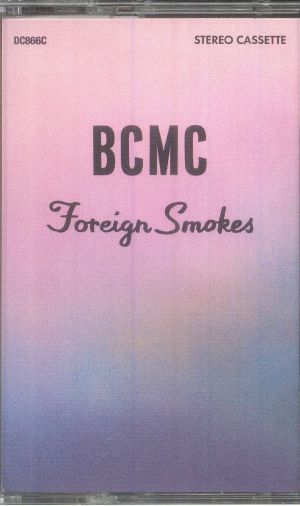



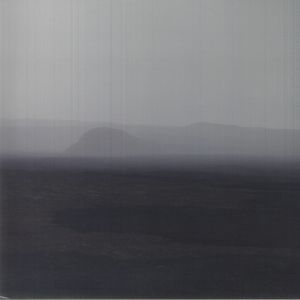







![The Key (Became The Imporant Thing & Then Just Faded Away]](https://imagescdn.juno.co.uk/300/CS1020149-01A-MED.jpg)


